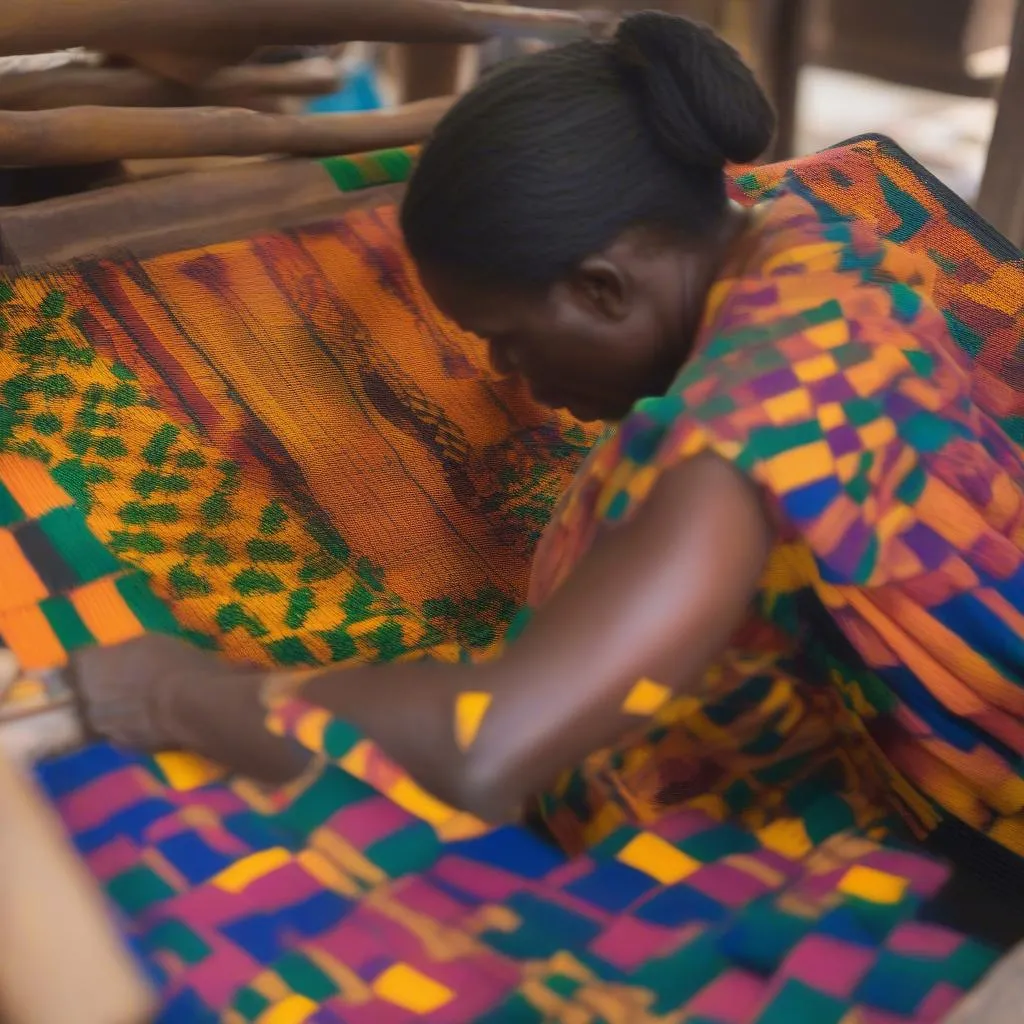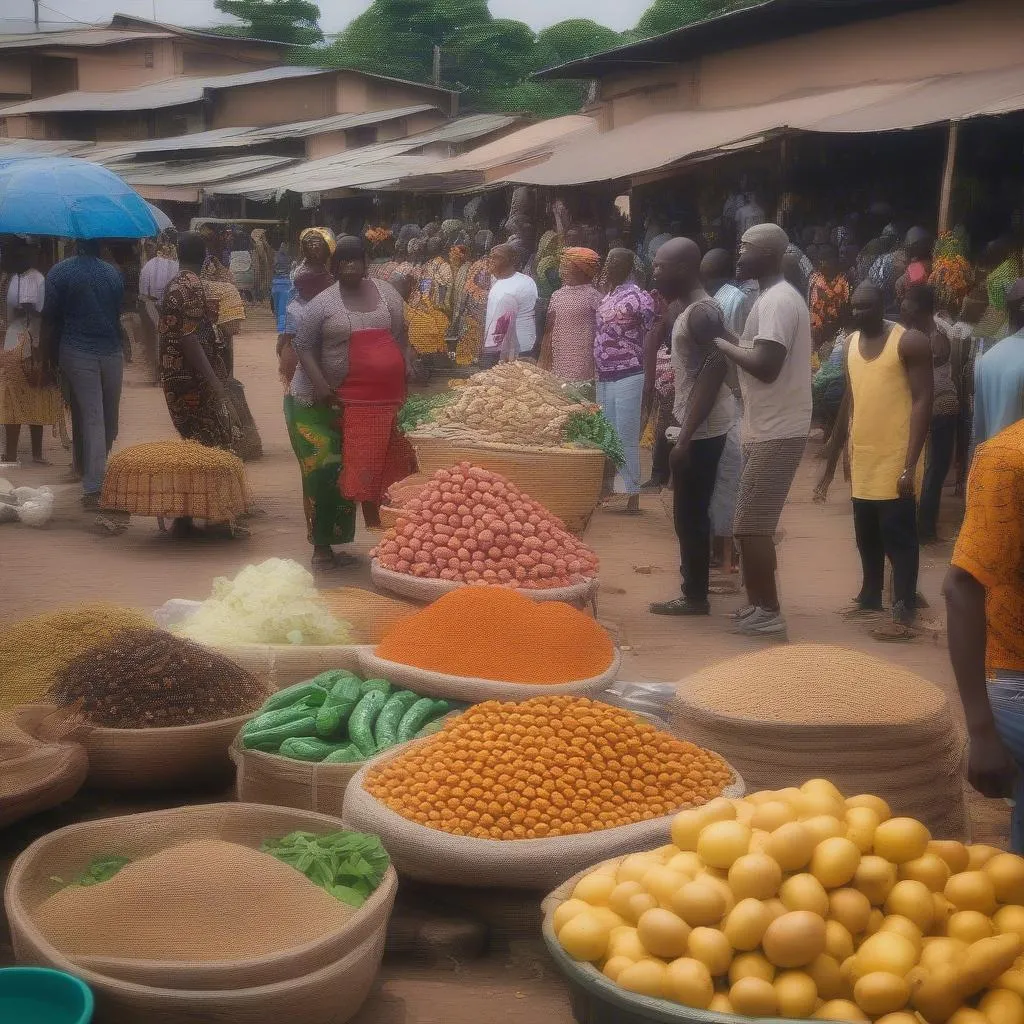Have you ever dreamt of immersing yourself in the vibrant culture of West Africa? Picture this: the rhythmic beat of drums, the colorful kente cloth, the taste of spicy jollof rice, and the warm smiles of locals welcoming you to their country. This is Ghana, a country brimming with history, natural beauty, and welcoming people. But Is Ghana Safe To Travel To? Let’s explore this question and equip you with all the information you need to plan an unforgettable and safe trip.
Safety in Ghana: What You Need to Know
Ghana has earned a reputation as one of the safest countries in Africa. Its stable democracy, friendly locals, and low crime rates contribute to a positive travel experience for most visitors. However, like any destination, it’s essential to be aware of your surroundings and take precautions to ensure your safety.
Petty Crime and How to Avoid It
While Ghana has a low crime rate compared to other countries, petty theft can occur, particularly in crowded areas like markets and bus stations. Here’s how to minimize risks:
- Stay Aware of Your Surroundings: Pay attention to your belongings, especially in crowded places.
- Don’t Flash Valuables: Avoid wearing expensive jewelry or displaying large amounts of cash.
- Use Hotel Safes: Secure your valuables in your hotel safe when not needed.
- Be Cautious with Strangers: While Ghanaians are generally friendly and welcoming, be cautious about sharing personal information with people you don’t know well.
Transportation Safety
- Taxis and Tro-Tros: Opt for registered taxis or ride-hailing services instead of unmarked taxis or “tro-tros” (minibuses) for safer transportation, especially at night.
- Negotiate Fares in Advance: Agree on fares with taxi drivers before starting your journey to avoid misunderstandings.
- Road Safety: Be mindful of road conditions, especially during the rainy season. Ghana’s roads can be unpredictable.
Health and Medical Considerations
- Vaccinations: Consult your doctor about necessary vaccinations and malaria prevention medication well in advance of your trip.
- Travel Insurance: It’s crucial to have comprehensive travel insurance that covers medical emergencies, evacuations, and lost belongings.
- Food and Water Safety: Stick to bottled water and be cautious about street food, especially if you have a sensitive stomach.
Cultural Sensitivity and Respect
Ghanaians are generally tolerant and welcoming, but it’s essential to be respectful of local customs and traditions:
- Dress Modestly: Dress conservatively, especially when visiting religious sites.
- Ask Permission Before Taking Photos: Seek consent before photographing locals, especially in rural areas.
- Learn Basic Greetings: Learning a few basic Akan phrases, the most widely spoken language, will go a long way in showing respect and breaking the ice with locals.
 Kente Cloth
Kente Cloth
Planning Your Safe and Unforgettable Ghanaian Adventure
Ghana offers a wealth of experiences for every kind of traveler. Here are some tips to plan your trip:
Choosing Your Destinations
- Accra: The vibrant capital city offers a mix of history, culture, and modernity. Explore the National Museum, visit the Kwame Nkrumah Mausoleum, and experience the lively atmosphere of Makola Market.
- Cape Coast: This coastal city is home to UNESCO World Heritage Sites like Cape Coast Castle and Elmina Castle, somber reminders of Ghana’s role in the transatlantic slave trade.
- Kakum National Park: Hike through the rainforest canopy on the famous canopy walkway and spot diverse wildlife.
- Busua Beach: Relax on pristine beaches, try surfing, or simply soak up the sun at this popular coastal destination.
Budgeting for Your Trip
Ghana offers affordable travel options, but your budget will depend on your travel style. Accommodation ranges from budget-friendly guesthouses to luxury hotels. Food can be very affordable, especially if you enjoy local dishes.
Getting Around
- Domestic Flights: Domestic flights connect major cities within Ghana.
- Buses: Long-distance buses are a common and affordable way to travel between cities.
- Taxis and Tro-Tros: Taxis and tro-tros are readily available for shorter distances within cities and towns.
FAQs About Safety in Ghana
Is it safe to travel solo in Ghana?
Yes, Ghana is generally safe for solo travelers, but it’s essential to take the same precautions you would in any unfamiliar destination. Stay in well-lit and populated areas, be mindful of your belongings, and inform trusted individuals of your whereabouts.
Is Ghana safe for female travelers?
Ghana is generally considered safe for female travelers. However, as with any destination, it’s advisable to exercise caution, especially when traveling alone at night. Dress modestly and respect local customs to minimize unwanted attention.
What about LGBTQ+ travelers in Ghana?
Ghanaian society can be conservative regarding LGBTQ+ issues. While there’s no specific law against homosexuality, public displays of affection between same-sex couples could attract unwanted attention.
Conclusion
Ghana, with its warm hospitality, rich culture, and diverse landscapes, is a rewarding destination for travelers seeking authentic African experiences. By staying informed, taking necessary precautions, and immersing yourself in the local culture respectfully, you can have a safe and unforgettable journey through this captivating country.
Don’t hesitate to explore further tips and insights on safe and enriching travel experiences in Ghana and beyond on TRAVELCAR.edu.vn. Start planning your Ghanaian adventure today!
 Ghanaian Food Market
Ghanaian Food Market

